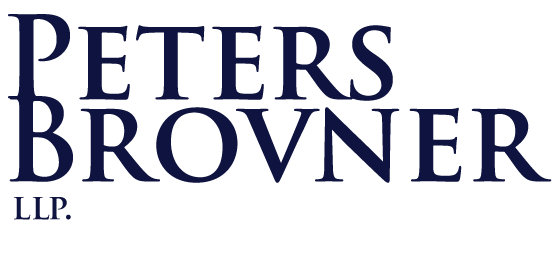What’s the Difference Between Sexual Harassment and Sexual Assault?
Lesley Brovner & Mark Peters
August 23, 2022
Sexual Harassment and Sexual Assault are two broad categories of Sexual Misconduct that are illegal under City, State and federal Law.
Defining Sexual Assault
In New York State, criminal sexual assault is covered by Sections 130 of the Penal Code, which includes a variety of crimes covering various sexual acts, such as:
- Rape (PL§130.25, §130.30, §130.35)
- Criminal Sexual Acts (Forced Anal or Oral Sex) (PL §130.40, PL §130.45, PL §130.50)
- Facilitating a Sexual Offense with a Controlled Substance (PL §130.90).
- Sexual Abuse (Unwanted sexual contact) PL §55, PL §130.60, PL §130.65)
Defining Sexual Harassment
Generally, sexual harassment happens in one of two ways: Quid Pro Quo or Hostile Work/School Environment.
“Quid pro quo” literally means “this for that” in Latin. Quid pro quo sexual harassment occurs when someone in a position of authority (i.e. a manager, supervisor or teacher or coach) seeks sexual favors from a worker/student in return for some type of benefit — such as a raise, better hours, promotion, high grades, access to educational programs etc. — or to avoid some type of detriment, like a pay cut, demotion, poor performance review, poor grades, firing etc.
A hostile work/school environment is one where, for example, a supervisor, manager, teacher, coach, coworker, or other student by words or actions negatively impacts another employee’s ability to work/student’s ability to learn. Any employee can be responsible for creating such a hostile work environment.
Sexual Harassment can include:
- Unwelcome sexual advances
- Requests for sexual favors
- Sexually offensive/inappropriate remarks or jokes
- Unwanted touching or groping
- Coerced sex acts
- Requests for favors of a sexually suggestive nature
- Displaying pornographic images, sexual graffiti, or offensive illustrations
- Comments about a person’s gender or sexual preferences
- Sexual gestures (e.g., pantomiming sex acts)., notes, teasing, jokes
- Deliberate and unwelcome touching, pinching, patting
- Pressure for dates and/or pressure for sex
- Sexually demeaning comments
- Comments generally demeaning to one particular gender
Sexual Harassment does not necessarily require a criminal act (although some conduct could constitute a crime under the applicable state penal law).
Who Can Be Sued For Sexual Harassment?
It is sometimes possible to bring a civil lawsuit against not only the perpetrator of sexual harassment, but also the harasser’s employer or others with supervisory responsibilities at the institution where the sexual misconduct occurred, such as a sports team, educational institution, religious institution or corporation.
Sexual Harassment Protections Under New York City Human Rights Law
The New York City Human Rights Commission defines sexual harassment as follows:
The NYC Human Rights Law protects all individuals against discrimination based on gender, which includes sexual harassment in the workplace, in housing, and in public accommodations like stores and restaurants. Violators can be held accountable with civil penalties of up to $250,000 in the case of a willful violation.
The Commission can also assess emotional distress damages and other remedies to the victim, can require the violator to undergo training, and can mandate other remedies such as community service.
New York City’s laws provide greater protection than federal law for Sexual Harassment
The City’s harassment laws cover offensive remarks about a coworker’s sex, verbal harassment, and hostile work environments. While federal laws require that harassment be “severe or pervasive,” New York City laws go further, outlawing any sexually hostile behavior or comments that go beyond a “petty slight” or “trivial inconvenience.” Thus, individual comments on a worker’s appearance or sexually suggestive teasing or joking may form a claim under City law.
Sexual Harassment Protections Under State Law
With the emergence of the Me Too movement, more survivors of sexual abuse and harassment are coming forward and seeking justice. Indeed, earlier this year the NY State Legislature passed the Adult Survivor’s Act, which allows adults to bring civil cases against their abusers that had previously been time barred. It is important to note, however, that the ASA only covers sexual assault cases – not most sexual harassment cases.
New York State’s comprehensive anti-discrimination statute is the New York State Human Rights Law (State Human Rights Law). The State Human Rights Law prohibits discrimination based on specific protected classes in employment, housing, credit, places of public accommodations, and non-sectarian educational institutions.
Sexual Harassment Protections Under Federal Law
There are two main federal statutes that protect against sexual harassment: Title VII and Title IX.
Title VII of the Civil Rights Act of 1964 protects employees, job applicants and union members from sex discrimination at the workplace and at the union hall.
Title IX of the Education Amendments of 1972 prohibits sex discrimination in educational programs that receive federal funding which includes almost all universities both private and public.
If you or someone you know is seeking legal advice concerning this topic, please reach out to the lawyers at Peters Brovner LLP for a consultation.
